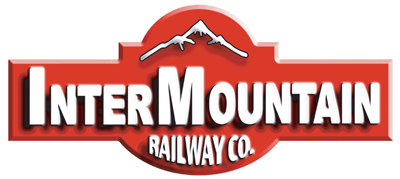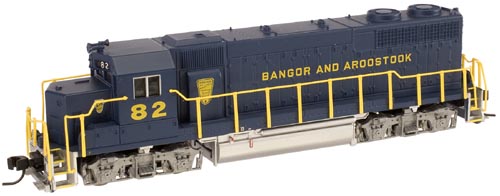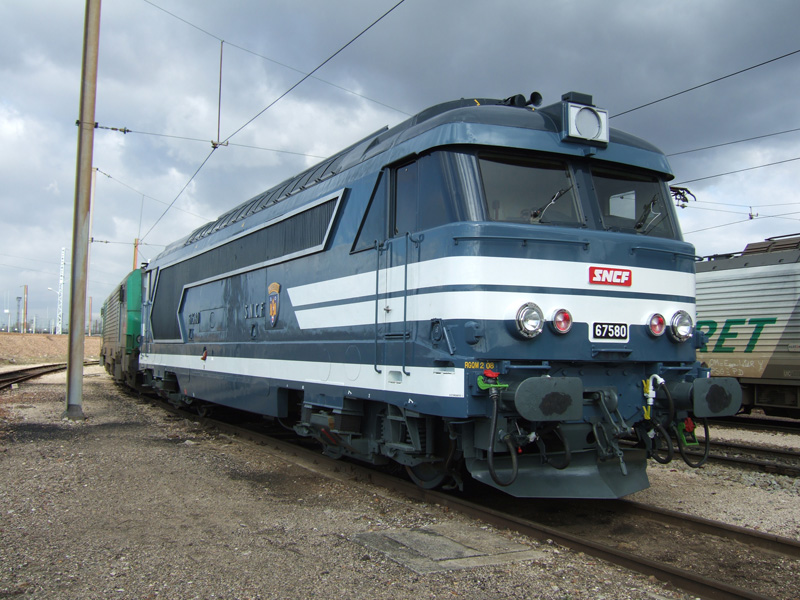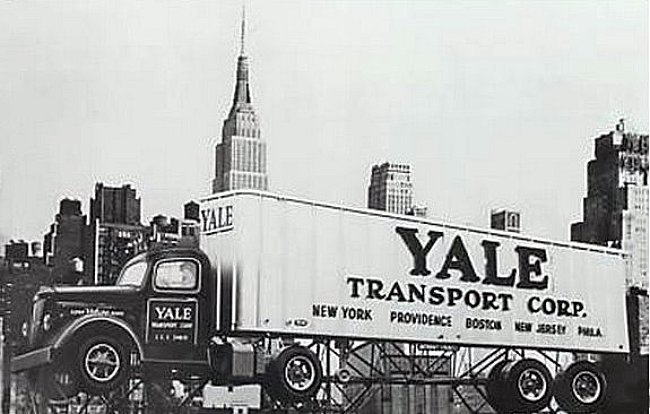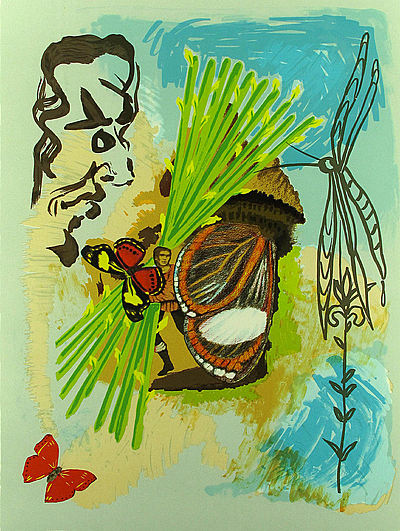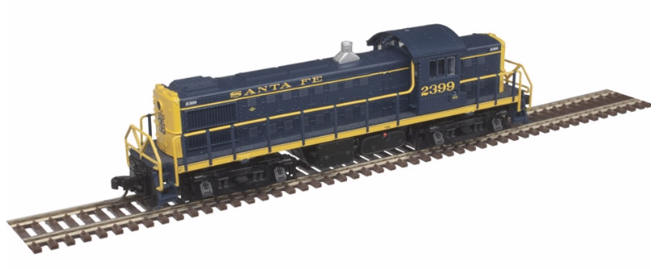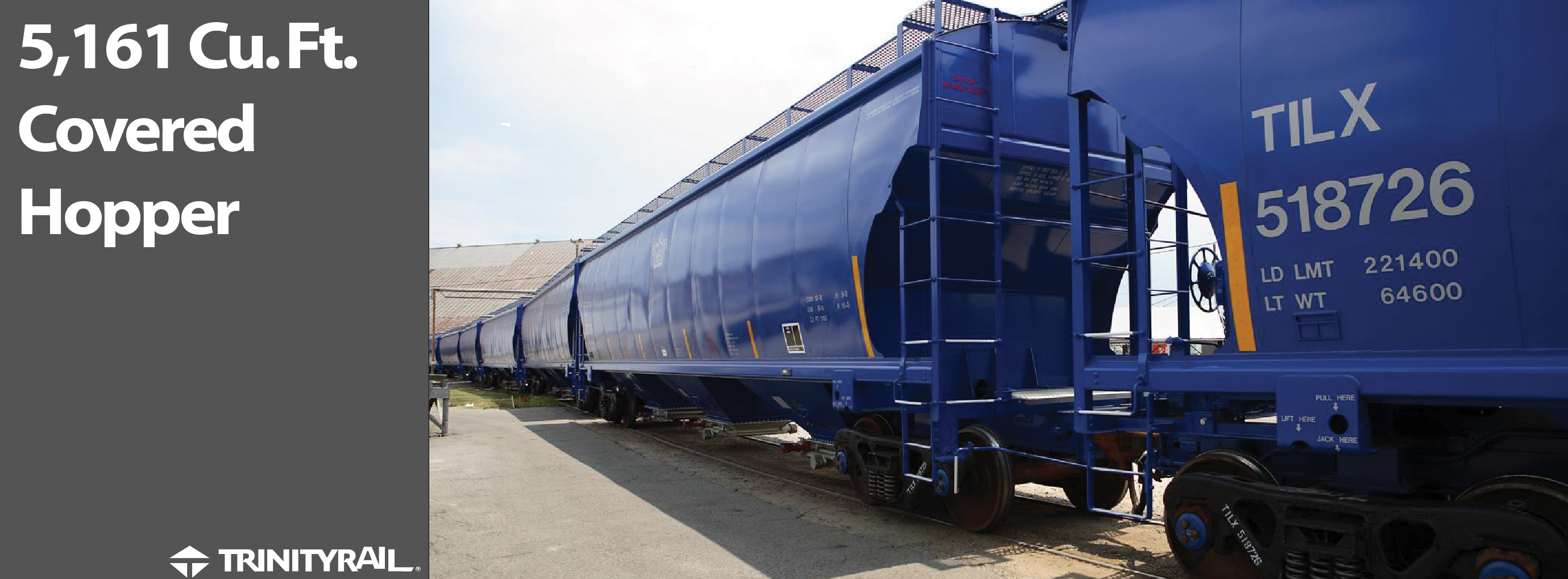Prototype History: TrinityRail’s extensive railcar product portfolio has a complete line of covered hopper cars including a 5,161 cubic foot covered hopper car optimized to transport agricultural products, sugar, dry chemicals, or other similar products. In 1995, Trinity Industries introduced a new center-sill design covered hopper car designed primarily for grain transport. The new design was visually quite different - this one featured curved sides versus previously familiar rib-sided design adopted from Pullman-Standard.
Road Name History: 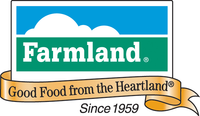 The cooperative was founded 1929 by Howard A. Cowden as the Union Oil Company (as a successor to Cowden Oil Company which he founded the year before). In 1935 it took the name Consumers Cooperative Association (CCA), and in 1966 Farmland Industries, Inc.
The cooperative was founded 1929 by Howard A. Cowden as the Union Oil Company (as a successor to Cowden Oil Company which he founded the year before). In 1935 it took the name Consumers Cooperative Association (CCA), and in 1966 Farmland Industries, Inc.
At its peak, the organization was the leading agricultural cooperative in North America, owned by 1,700 farm cooperatives in the United States, Canada and Mexico, which cooperatives were in turn owned by more than 600,000 farmer families. It had 16,000 employees in all 50 states and 90 countries. In 1977 it ranked #78 on the Fortune 100 company list. In 2001, its annual revenues were in excess of $11.8 billion. It was listed as one of Forbes' "most admired" companies. It ranked #170 on the Fortune List when the decision was made to sell the cooperative's assets.
The cooperative provided both agricultural supply and marketing services ranging from petroleum refining, fertilizer manufacture, feeds, shipping, crop production, livestock production, and refrigerated foods sales and marketing. The company was a joint venture partner with a number of other companies, including: Archer Daniels Midland in grain storage, distribution and marketing; Simplot in phosphate production; ConAgra in wheat marketing; Land O'Lakes in feed systems and crop nutrients; Cenex Harvest States in lubricants, propane and refined fuels; Mississippi Chemical in nitrogen production and shipping (Trinidad and Tobago); Norsk Hydro in phosphate fertilizer production and marketing; Wilbur Ellis Company in crop protection product marketing and distribution; U.S. Premium Beef in beef packing; and Kansas State University in agricultural research. Farmland also owned Tradigrain, a group of international grain trading companies headquartered in Geneva, Switzerland. Tradigrain was a wholly owned subsidiary of Farmland and had branch offices in Buenos Aires, Argentina; Paris, France; Bremen, Germany; Budapest, Hungary; Almaty, Kazakhstan; Tokyo, Japan; Mexico City, Mexico; Moscow, Russia; Seoul, Korea; Kiev, Ukraine; Nikolaev, Ukraine, London, United Kingdom; and Akkala, Uzbekistan.

At its peak, the organization was the leading agricultural cooperative in North America, owned by 1,700 farm cooperatives in the United States, Canada and Mexico, which cooperatives were in turn owned by more than 600,000 farmer families. It had 16,000 employees in all 50 states and 90 countries. In 1977 it ranked #78 on the Fortune 100 company list. In 2001, its annual revenues were in excess of $11.8 billion. It was listed as one of Forbes' "most admired" companies. It ranked #170 on the Fortune List when the decision was made to sell the cooperative's assets.
The cooperative provided both agricultural supply and marketing services ranging from petroleum refining, fertilizer manufacture, feeds, shipping, crop production, livestock production, and refrigerated foods sales and marketing. The company was a joint venture partner with a number of other companies, including: Archer Daniels Midland in grain storage, distribution and marketing; Simplot in phosphate production; ConAgra in wheat marketing; Land O'Lakes in feed systems and crop nutrients; Cenex Harvest States in lubricants, propane and refined fuels; Mississippi Chemical in nitrogen production and shipping (Trinidad and Tobago); Norsk Hydro in phosphate fertilizer production and marketing; Wilbur Ellis Company in crop protection product marketing and distribution; U.S. Premium Beef in beef packing; and Kansas State University in agricultural research. Farmland also owned Tradigrain, a group of international grain trading companies headquartered in Geneva, Switzerland. Tradigrain was a wholly owned subsidiary of Farmland and had branch offices in Buenos Aires, Argentina; Paris, France; Bremen, Germany; Budapest, Hungary; Almaty, Kazakhstan; Tokyo, Japan; Mexico City, Mexico; Moscow, Russia; Seoul, Korea; Kiev, Ukraine; Nikolaev, Ukraine, London, United Kingdom; and Akkala, Uzbekistan.
Brand/Importer Information: InterMountain was founded in 1985 by Fred Brummet. They got started in the model railroad business by producing O-Scale model kits. They got started in the N Scale business almost a decade later when in 1994 they introduced the 40-23 reefer car in kit form. Later, in 1998, they started producing RTR (Ready-to-Run) models. By the early 2000s, InterMountain phased out kit production in favor of the RTR models.
The InterMountain Railway company is located at 1224 Boston Ave in Longmont, CO. They are a manufacturer of HO, N and Z scale model trains. They have produced kits as well as RTR (Ready-To-Run) models. Their N Scale products include locomotives as well as rolling stock. Their rolling stock lineup includes Boxcars, Hoppers, Tank Cars, Reefers, Gondolas, Stock Cars and Flatcars.
Their locomotive releases have primarily been diesel units, with the one major exception being their series of AC-12 Cab Forward steam locos. Their diesel lineup includes F3's, F7's, F9's, SD40's, SD45's and FT units. They are known for quality and detail. They also release their rolling stock in larger varieties of road numbers than most of the other manufacturers.
The InterMountain Railway company is located at 1224 Boston Ave in Longmont, CO. They are a manufacturer of HO, N and Z scale model trains. They have produced kits as well as RTR (Ready-To-Run) models. Their N Scale products include locomotives as well as rolling stock. Their rolling stock lineup includes Boxcars, Hoppers, Tank Cars, Reefers, Gondolas, Stock Cars and Flatcars.
Their locomotive releases have primarily been diesel units, with the one major exception being their series of AC-12 Cab Forward steam locos. Their diesel lineup includes F3's, F7's, F9's, SD40's, SD45's and FT units. They are known for quality and detail. They also release their rolling stock in larger varieties of road numbers than most of the other manufacturers.
Item created by: petecduffy on 2019-02-07 09:30:37. Last edited by petecduffy on 2019-02-07 09:30:38
If you see errors or missing data in this entry, please feel free to log in and edit it. Anyone with a Gmail account can log in instantly.
If you see errors or missing data in this entry, please feel free to log in and edit it. Anyone with a Gmail account can log in instantly.



